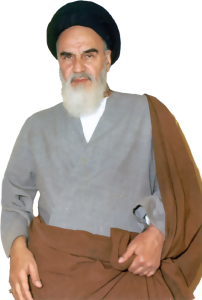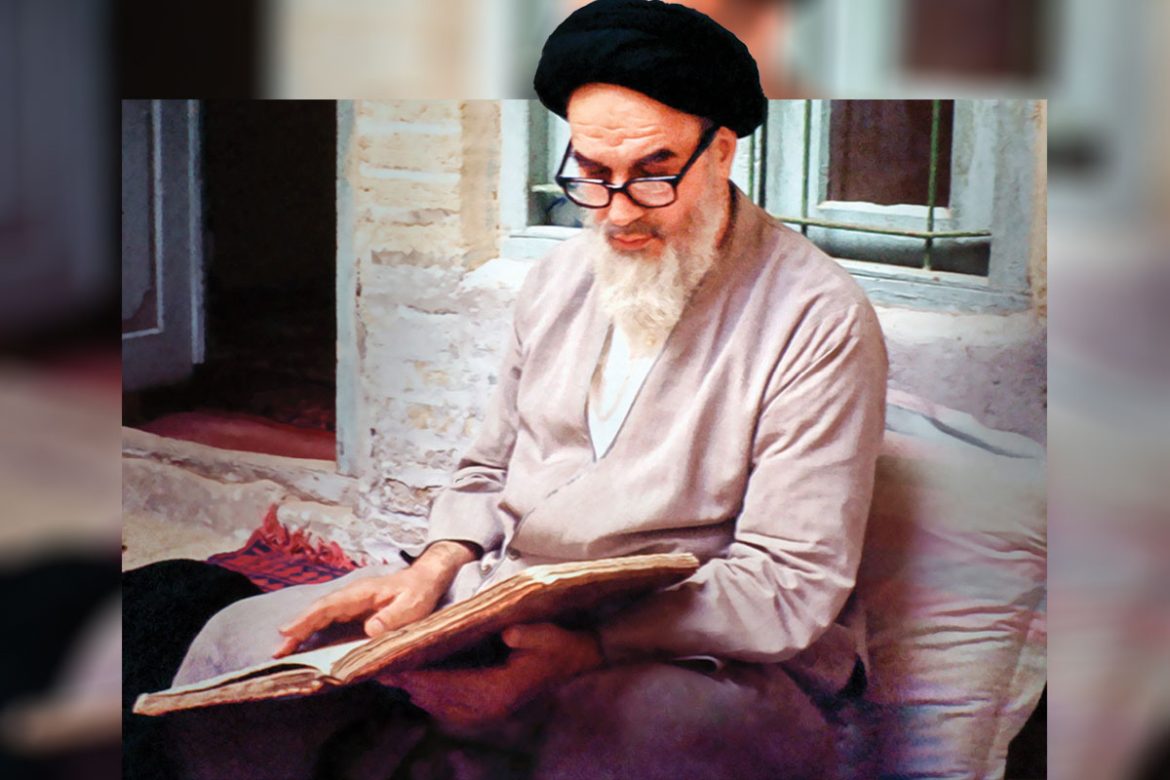The well-known name of His Eminence Imam Khomeini (RA), the most influential figure of the 20th century, reminds us of his unprecedented knowledge and thoughts on mysticism, philosophy, jurisprudential sciences, governance, and politics as an exemplary Imam. The events and happenings of the contemporary world show that even after more than two decades since the departure of Imam Khomeini (r), there is a significant change in the world political landscape influenced by Imam’s ideology.
The resistance movements are still being inspired by his academic discourse and intellectually battling and challenging imperialism across the world.
Three revolutions shook the world in the 20th century. Both the Russian and the Chinese experience had a wider appeal-for two reasons: they came in the wake of an oppressive capitalist system, which had squeezed the blood of the down trodden sections of society; and, the change was on the basis of an ideology that was new, and rather novel, for the humanity which had been afflicted, both by the exploitative bourgeoisie and the tyrannical church.
The Iranian Revolution was, however, unique. It neither had it derailed the human soul from the root of its faith nor deprived it of the fruits of social uplift; a thing considered, particularly in conservative societies, as repugnant to the spirit of religion.
The greatness of Imam Khomeini lies not in his being a religious cleric but in his universal approach to life in all its aspects and manifestations.
The Imam infused the spirit of Islam in the Iranian youth but did not leave them to be swayed by the specific interpretation of faith, common to the contemporary half-educated clergy. He gave them a vision in which they could see the worldly affairs and the religious faith as two aspects of the same unit, i.e., life.
If, in the West, the 17th century Industrial Revolution had shaped the direction of socio-political thoughts and the future practical experience – also pursued by the comparatively secular Far Eastern societies, thinkers in the Islamic world still wandered in the deserts of bewilderment:
Not that Islam had lost its vigour to lead the man into the ages but lack of Ijtihad had rendered it a mere collection of rituals to ward off evil spirits and attain paradise- No realization that Islam is a complete code of individual and collective life and it offers best solution to the minutist problems of all societies and all times.
 The onslaught of Western thought had already shaken the hearts of Muslim scholars like Allama Muhammad Iqbal, Sayyid Qutub, Maulana Maududi and the confined themselves to recollecting Islamic thoughts and reorganizing the political forces of the Muslims, only Allama Muhammad Iqbal an Imam Khomeini could crown their efforts by practically shaping human societies according to their ideals- the misfortune of the Pakistani nation being that their benefactor could not live long to guide them into their new life.
The onslaught of Western thought had already shaken the hearts of Muslim scholars like Allama Muhammad Iqbal, Sayyid Qutub, Maulana Maududi and the confined themselves to recollecting Islamic thoughts and reorganizing the political forces of the Muslims, only Allama Muhammad Iqbal an Imam Khomeini could crown their efforts by practically shaping human societies according to their ideals- the misfortune of the Pakistani nation being that their benefactor could not live long to guide them into their new life.
The leadership capabilities of Imam Khomeini would look more distinct when viewed in the background of the life existing in Iran before the Islamic revolution. King Reza Shah, backed by the country’s rich influential class and the mighty world power, on the one hand, and the most Westernized Iranian class, on the other,
The Imam had to fight against all these odds with an ideology that, according to most of his countrymen, had out-fashioned and was no longer able to meet the modern-day challenges.
The onslaught of Western culture on Reza Shah’s Iran had given the sense that Islam was not able to meet the modern-day challenges.
Iran, before the revolution, was virtually the most Westernized and advanced country in the Muslim world. It was not called the Switzerland of the East just for its natural beauty-in which many other Eastern countries also abounded. It was due to the modern fashion and values of the Iranian people that the country had drawn the attention of the East and the West.
Western culture and values had dominated Iran to the extent that terms like Islamic culture, Islamic values, and Muslim nationalism were thought of as the most despised and outmoded terms.
In such an environment, those defending and promoting religious ideologies were being looked at with contempt and treated as hateful creatures. This had created an inferiority complex among the youth, struggling for the supremacy of Islamic values.
Nobody, in a society boasting of Western culture, would pay heed to such inferior beings or consider them worthy of leading the society.
Imam Khomeini brought these dejected youth out of the slums of inferiority complex and infused a spirit of self-respect and egoism among them, teaching them that not the teddy pro-Westerners but those proud of Islamic culture were the ones to boast of themselves and to be followed by others.
He also created self-confidence among the Iranian youth, giving them the power to change the destiny of their nation.
Prior to the Islamic Revolution, the Iranian youth considered Westerners as superior beings, capable of showing marvels in all fields of science and arts, and worthy to be followed, but now they have become convinced of their ability to shape the future of their nation and excel in all arenas of science and technology.
It was this spiritual change that made the Iranian youth fight against the cruel forces of the King, making them an iron wall against the oppressive and tyrannical might of the state. This spiritual potentiality convinced the Iranian youth that they could trample down all the hurdles in the way of their revolution.
The modern-day Iran is rightly the manifestation of the religio-political wisdom of Imam Khomeini. The state and the society of the Islamic Republic of Iran today give the look of a compact whole- a unity in the diversities of religion and worldly progress: a leviathan in the comet of Muslim nations that possesses all the capabilities to attain material and scientific development.
Despite the hurdles and the hardships created by the antagonistic Western powers and in spite of the loss of the mantle of the population in the eight-year-long war with Iraq, the Iranian society today stands out, in all aspects, among the societies of the East.
Culturally, the revolutionary Iranian nation is exemplary. With 83 per cent of its population educated, Iran today represents a society of high morale and energy in the region.
From political administration and statehood, the socio-economic management, from agriculture to industry, from defense to defense production, and from education to science and technology, the post-Revolution Iran is considered to be a success.
Another distinction of the Iranian revolution is that, contrary to other Eastern and Muslim communities, the Islamic Republic has fully engaged its womenfolk in the socio-economic and political life, making them a useful and essential component of the society. Today, women can be seen working in all sectors and fields of Iranian national life. Without this factor, the dream of creating an advanced and stable society could not have been realized, particularly when more than 50 per cent of the male population had been consumed in the war.
Such a big social upheaval would have never been possible in a male-dominated Eastern society.
The Iranian nation is certainly very fortunate that they not only found a legendary leader like Imam Khomeini but also that he led them through all stages of their moral and material promotion.
Very few reformers in the history of mankind have been capable of achieving the fruits of their struggle in their lifetime.
Ayatollah Ruhollah Mousavi Khomeini, better known as Imam Khomeini, engineered Iran’s 1979 Islamic Revolution, which led to the overthrow of the US-backed Shah of Iran. Imam Khomeini passed away on June 3, 1989, at the age of 87. Every year, the anniversary of Imam Khomeini’s demise is marked with a ceremony at his mausoleum with the Leader of the Islamic Revolution.
By: Rasheed Ahmad Chughtai, Chief Editor of the International Page, Pakistan





